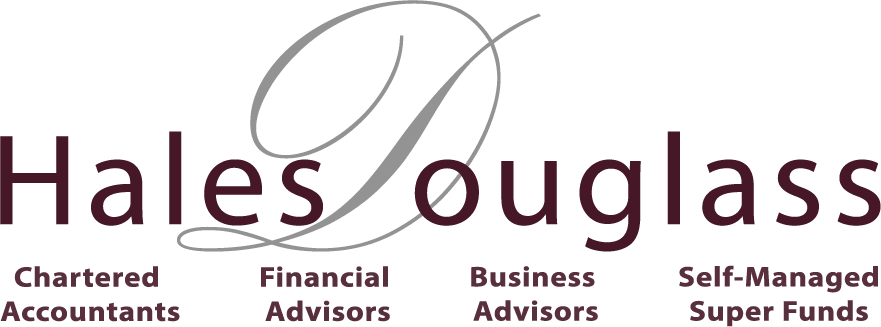Super contribution caps to rise
A key update for those contributing to super: The contribution caps for super contributions will increase starting the 2025 income year.
- The concessional contribution cap will increase from $27,500 to $30,000. This ‘CC’ cap is broadly applicable to employer super guarantee contributions, personal deductible contributions and salary sacrificed contributions.
- The non-concessional contribution cap will increase from $110,000 to $120,000. This ‘NCC’ cap is generally applicable to personal non-deductible contributions. The increase in the NCC cap also means that the maximum available under the three-year bring forward provisions will increase from $330,000 to $360,000. This is provided that the ‘bring forward’ is triggered on or after 1 July 2024.
The ‘total superannuation balance’ threshold for being able to make non-concessional contributions (and the pension general transfer balance cap) will remain at $1.9 million. Visit the ATO’s website here for more info…
Small business concessions
The ATO has recently issued a reminder that small business owners may be eligible for concessions on the amount of tax they ultimately pay. This depends on their business structure, their industry and their aggregated annual turnover.
For example, small business owners who have an aggregated annual turnover of less than:
- $2 million can access the small business CGT concessions;
- $5 million can access the small business income tax offset; and
- $10 million can access the small business restructure roll-over.
The ATO expects small business owners to check their eligibility each year before they apply for any of these concessions. Taxpayers generally need to keep records for five years to prove any claims they make.
Editor: We continuously identify tax concessions that could benefit our clients’ unique circumstances, especially small business concessions when applicable. For more info, visit the ATO’s website here or email us.
FBT time is fast approaching!
The ATO has advised employers that ‘FBT time’ is just around the corner, and they need to stay on top of their fringe benefits tax (FBT) obligations. Employers need to ensure they have attended to the following matters this FBT time:
- Identify if they have an FBT liability regarding fringe benefits they have provided to their employees or their associates between 1 April 2023 and 31 March 2024.
- Identify if they have an FBT liability as they will need to lodge an FBT return and pay the amount due by 21 May.
- Identify if they are currently registered for FBT and let the ATO know if they do not need to lodge an FBT return (Editor: by asking us to lodge an FBT non-lodgment notice) to prevent the ATO seeking a return from them at a later date.
- Employers should also remember that when the new FBT year starts on 1 April, they can choose to use existing records instead of travel diaries and declarations for some fringe benefits.
Electric Vehicle Charging & FBT
The ATO has released PCG 2024/2 which provides a short-cut method to help work out the cost of charging electric vehicles (‘EV’) at an employee’s home for FBT purposes. Eligible employers can choose to use either the EV home charging rate of 4.2 cents per kilometre or the actual cost.
Ultimately, all employers need to make sure they understand their FBT obligations and the records they need to keep to avoid an FBT liability. Read more on the ATO’s website here…
Jail sentence for fraudulent developer
A developer who conspired to lodge fraudulent business activity statements has been convicted and sentenced to 10 years in jail with a non-parole period of six years and eight months. The developer was involved with two companies that formed part of a group known as the ‘Hightrade Group’ which developed properties such as a hotel and golf course in the Hunter Valley, NSW. The developer fraudulently obtained GST refunds by using three tiers of companies (developers, building companies and suppliers) to grossly inflate the construction costs of his developments. The companies he was involved with also claimed to have purchased goods when no such purchases had occurred. In total, the developer intended to cause a loss to the Commonwealth of more than $15 million. His sentencing has closed a complex case, known as Operation 4. The ATO noted that “Tax crime, like the fraud uncovered in Operation 4, affects the whole community.”
Penalties to apply for overdue TPARs
Businesses that pay contractors to provide certain services may need to lodge a Taxable Payments Annual Report (TPAR) by 28 August each year. From 22 March, the ATO will apply penalties to businesses that:
- have not lodged their TPAR from 2023 or previous income years;
- have received three reminder letters about their overdue TPAR.
Taxpayers that don’t need to lodge a TPAR can submit a ‘non-lodgment advice form’. Taxpayers who no longer pay contractors can also use this form to indicate that they will not need to lodge a TPAR in the future. More info on the ATO’s website here…
Avoiding common Division 7A errors
Private company clients who receive payments, benefits or loans from their private companies need to ensure compliance with their additional tax obligations (which are often referred to as their ‘Division 7A’ obligations). There are multiple ways in which business owners may access private company money, such as through salary and wages, dividends, or what are known as complying Division 7A loans.
Division 7A is an area where the ATO sees many errors and the ATO is currently focused on assisting taxpayers in managing their obligations when receiving payments and benefits from their private companies. The ATO has recommended that business owners do the following:
- keep adequate records;
- properly account for and report payments and use of company assets by shareholders and associates; and
- comply with rules around Division 7A loans.
Understanding these Division 7A obligations is essential to:
- make informed decisions when receiving private company money and using private company assets; and
- avoid unexpected and undesirable tax consequences
The ATO has a webinar on common Division 7A errors here…
Please email or call our office on (02) 4455 5333 if we can help you with further information.
Please note: Many of the comments in this publication are general in nature and anyone intending to apply the information to practical circumstances should seek professional advice to independently verify their interpretation and the information’s applicability to their particular circumstances.






